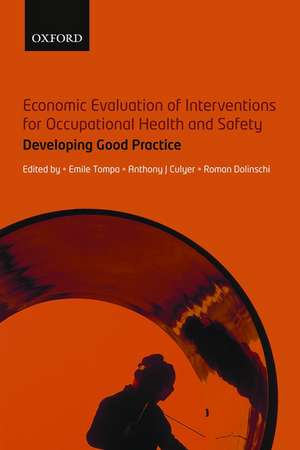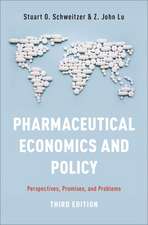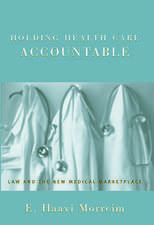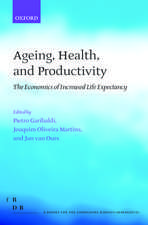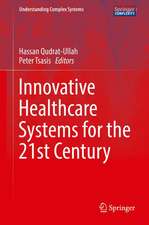Economic Evaluation of Interventions for Occupational Health and Safety: Developing Good Practice
Editat de Emile Tompa, Anthony J Culyer, Roman Dolinschien Limba Engleză Paperback – 21 aug 2008
Preț: 443.43 lei
Preț vechi: 645.91 lei
-31% Nou
Puncte Express: 665
Preț estimativ în valută:
84.85€ • 90.73$ • 70.75£
84.85€ • 90.73$ • 70.75£
Carte tipărită la comandă
Livrare economică 07-12 aprilie
Preluare comenzi: 021 569.72.76
Specificații
ISBN-13: 9780199533596
ISBN-10: 0199533598
Pagini: 314
Ilustrații: 10 black and white line illustrations
Dimensiuni: 157 x 234 x 19 mm
Greutate: 0.5 kg
Editura: OUP OXFORD
Colecția OUP Oxford
Locul publicării:Oxford, United Kingdom
ISBN-10: 0199533598
Pagini: 314
Ilustrații: 10 black and white line illustrations
Dimensiuni: 157 x 234 x 19 mm
Greutate: 0.5 kg
Editura: OUP OXFORD
Colecția OUP Oxford
Locul publicării:Oxford, United Kingdom
Recenzii
This book is unique in the economic evaluation research field...It is an indispensable resource for anyone directly involved in the conduct or appraisal of economic evaluation research in health and safety
This book presents an impressive summary of knowledge...I find [it] well-thought and organized not only for the academicians but also for the policy-makers and stakeholders (employers, managers, employee's association, etc.)
Extremely important and deserves careful consideration.
This book presents an impressive summary of knowledge...I find [it] well-thought and organized not only for the academicians but also for the policy-makers and stakeholders (employers, managers, employee's association, etc.)
Extremely important and deserves careful consideration.
Notă biografică
Emile Tompa is Adjunct Assistant Professor in the Department of Economics at McMaster University. He has an MBA from the University of British Columbia, an MA in Economics from the University of Toronto, and a PhD in Economics from McMaster University. Tompa's current research agenda is focused on the economic evaluation of workplace interventions and the behavioural consequences of insurance and regulatory mechanisms for occupational health and safety. In the area of economic evaluation, he has completed a systematic review of workplace intervention studies with economic analyses, and has undertaken several evaluations of participatory ergonomics interventions. In the area of insurance and regulatory mechanisms, he is undertaking research on experience rating, occupational health and safety regulation, and the adequacy and equity of workers' compensation benefits. He is the academic lead of a five-year community-university research initiative on the consequences of work injury.Anthony Culyer has been at York since 1969 where his main roles have been as Assistant Director of the (then) Institute for Social and Economic Research, Head of the Department of Economics and Related Studies, Pro-Vice-Chancellor and then Deputy Vice-Chancellor of the University. He currently holds the Ontario chair in Health Policy and System Design at the University of Toronto and is a Professor of Economics at the University of York, England. He chairs the R&D Committee of the National Institute for Health and Clinical Excellence, the Policy and Editorial Committees of the Office of Health Economics, and the Research Advisory Council of the Workplace Safety and Insurance Board in Ontario.Roman Dolinschi holds a Master's in Economics from the University of Toronto. Dolinschi has a strong interest in the economic evaluation of occupational health and safety interventions. He has recently completed several economic evaluations of occupational health and safety interventions and a systematic review of workplace intervention studies with economic evaluations. Dolinschi is also actively involved in three research themes: labour-market experiences and health; the behavioural consequences of insurance and regulation in occupational health and safety; and workplace-based occupational health and safety interventions.
